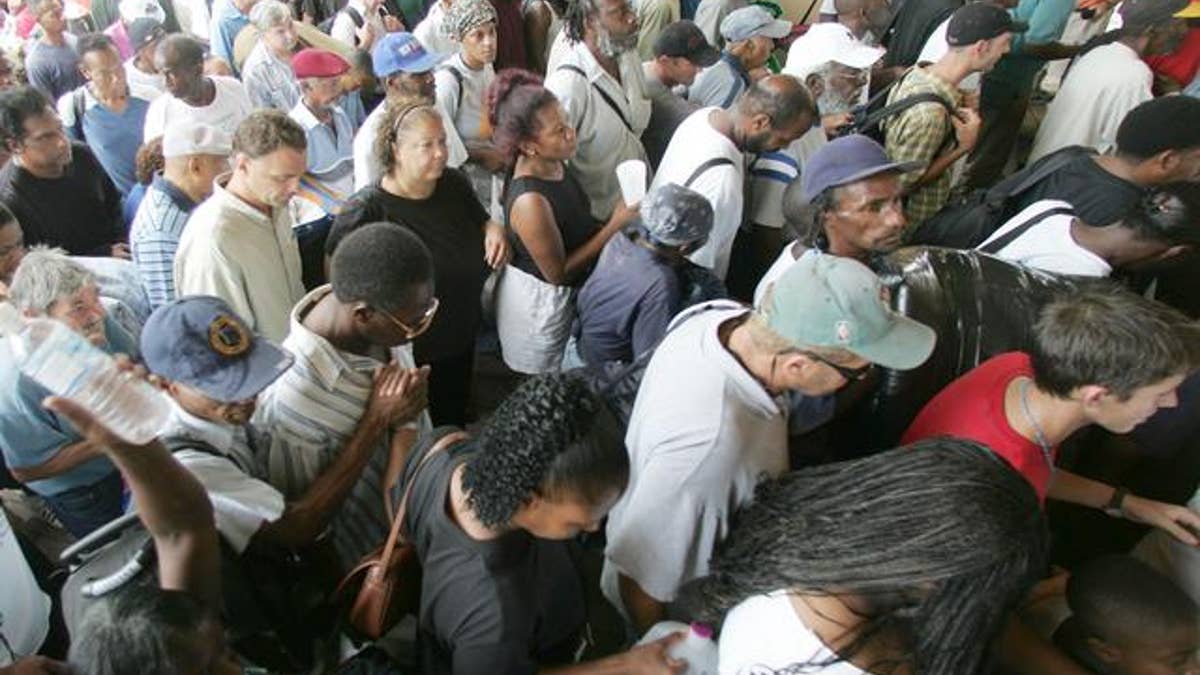
(AP)
Having been around hurricanes all my life, and having witnessed the devastating damage that storms like Katrina and Sandy can leave in vulnerable places, I know how critical it is to prepare— and what can happen if you do not.
Now, government officials always focus on very important things, like evacuation of low-lying areas; encouraging residents to have batteries, a sufficient water supply and gasoline for cars; and having safety measures in place like preventing fire and carbon monoxide poisoning, which can occur when there’s no electricity and people are using generators. However, one of the things that impacted me the most in New Orleans when I saw the aftermath of Katrina was the tragic effect that it created on the health care state of citizens who became displaced from their homes. Often in emergency situations like any major storm, and likely this week with the fast-approaching Hurricane Matthew— which is expected to make landfall Thursday night— people forget to tend to their medications.
In New Orleans, I saw that dozens of folks who were displaced had run out of their essential medications within a day or two, and, unfortunately, in many cases they were not able to describe those medications they were taking to physicians who were stationed in shelters. Because there was a widespread lack of resources like electricity, those doctors in turn were unable to contact anyone to get the right medical information for these patients.
It’s for those reasons that I urge all of our readers to think about their health care needs as you leave for a shelter or if you find yourself under acute evacuation protocol.
First, if you can now, go to the pharmacist and try to get a refill on your prescription in case the storm is as bad as it’s predicted. As of Thursday afternoon, meteorologists had projected a category 4 storm with flooding waters and winds of up to 140 mph— damaging, fierce winds that can leave homes in shambles, just as Katrina had.
If you can’t make it to your local pharmacy in time, take your current medication in the original bottle with you, and keep it with you at all times, placed in a Ziploc bag to ensure the medication stays dry. If you are a diabetic or have medication that is injectable, again, take precautions to store those medications in a cool and safe place so that if you have to travel, the medication stays intact. Remember, patients taking blood pressure and other heart medications, anticoagulants and diabetic medications: A day or two without your medications could have very devastating effects.
For individuals who may have complex medical issues, if you have copies of any of your medical records, take them with you along with your other disaster prep supplies, and keep them protected from likely winds and water as well. Sometimes, even if you run out of the medications and people don’t remember what the medicine was doctors and health care workers can collaborate to identify what your medical needs are and get you the care you need. Having those records on hand will help them do so if you don’t have sufficient medication on your person already.
This is very important because in communities that get hit hard by hurricanes, it may take weeks before you’re able to go back to your homes, and this is something that, if you don’t pay attention, is quite problematic— especially for people who need their health care on a continuous basis.
I know that it’s not always possible to remember everything, especially when there’s a natural disaster that our community is already taking broader steps to brace and prepare for. But as you stock up on your batteries, flashlights and water, remember your medicines and medical records are part of your safety kit— and take precautions accordingly. That was the lesson that I will never forget from Katrina, and it's a lesson that can be life-saving.







































